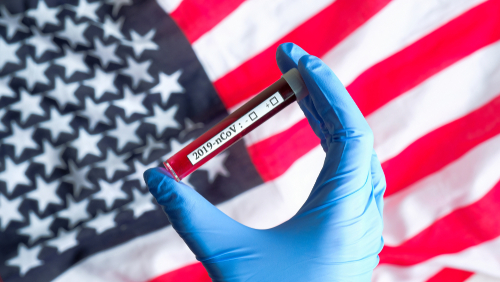
U.S. House and Senate leaders reached an agreement on an $8.3 billion emergency supplemental appropriations package on Wednesday to fund the nation’s response to the coronavirus outbreak, including critical funding for vaccine research and development.
“Today Democrats and Republicans in Congress showed they can come together in a bipartisan way to respond to the coronavirus in a swift, smart and strategic way to keep the American people safe,” said Senate Democratic Leader Chuck Schumer (D-NY).
The bipartisan emergency package also includes support for state and local governments and funding for the procurement of medical supplies.
The legislation, the Coronavirus Preparedness and Response Supplemental Appropriations Act of 2020, H.R. 6074, is expected to be voted on by the House on Wednesday and by the Senate this week.
The package includes more than $3 billion for research and development of a vaccine, diagnostics and therapeutics to treat coronavirus. Specifically, that total figure includes more than $2 billion for the Biomedical Advanced Research and Development Authority (BARDA) to support advanced R&D of vaccines, prioritizing platform-based technologies with U.S.-based manufacturing capabilities. Additionally, $826 million would be allocated for the National Institutes of Health to support basic R&D for a coronavirus vaccine.
The legislation would also ensure that vaccines, therapeutics, and diagnostics developed using taxpayer funds to combat the coronavirus be affordable in the commercial market.
Under the package, the Centers for Disease Control and Prevention would receive $2.2 billion to support federal, state, and local public health agencies to prevent, prepare for, and respond to the coronavirus. This includes $950 million – of which $475 million must be allocated within 30 days – to support state and local governments as they conduct surveillance for coronavirus and laboratory testing to detect positive cases, among other public health activities.
In addition, $300 million would be directed to replenishing the Infectious Diseases Rapid Response Reserve Fund, which supports immediate response activities during outbreaks.
In terms of support for healthcare preparedness, nearly $1 billion in funding would be aimed at procuring pharmaceuticals and medical supplies and at Community Health Centers. About $500 million of that amount would go toward the procurement of pharmaceuticals, masks, personal protective equipment, and other medical supplies, which can be distributed to state and local health agencies in areas with a shortage of supplies.
The emergency supplemental package would also direct $435 million to support health systems overseas to prevent, prepare, and respond to the coronavirus, and $300 million to respond to humanitarian needs.
The emergency funding package negotiated by congressional leaders far exceeds the Trump administration’s request for $1.25 billion in new funding to combat the coronavirus, an amount that was widely criticized by both Republicans and Democrats as insufficient.
“It’s time to give our public health experts and healthcare professionals the surge resources they need at this challenging time,” U.S. Senate Majority Leader Mitch McConnell (R-KY) said on the Senate floor on Wednesday.
The outbreak of the novel coronavirus (COVID-19) that started in Wuhan, China has since spread to approximately 100 countries. In the United States, there are 80 cases of coronavirus in 13 states, resulting in nine deaths. There currently is no vaccine available for COVID-19. Top U.S. health officials have said a vaccine could take at least a year to a year and a half to develop.
Thomas Inglesby, director of the Center for Health Security at the Johns Hopkins Bloomberg School of Public Health, testified about funding level comparisons for past infectious disease responses during a U.S. House Homeland Security Committee hearing on confronting the coronavirus.
“In 2009, Congress appropriated $7.7 billion for the H1N1 influenza pandemic, and in 2014, $5.4 billion was appropriated for the Ebola response,” he said in written testimony on Wednesday. “COVID-19 will require perhaps twice as much money as Ebola or more.”




